Vancouver Playhouse | Map
Pacific Baroque Orchestra; Alexander Weimann, music director; Vancouver Cantata Singers; Paula Kremer, artistic director; Yulia Van Doren, soprano; Krisztina Szabó, mezzo-soprano; Charles Daniels, tenor; Tyler Duncan, baritone
Join the PBO, Vancouver Cantata Singers and conductor Alexander Weimann for EMV’s very first presentation of Handel’s greatest known work in the intimate atmosphere of the Vancouver Playhouse. Hear how the use of period instruments in a mid-sized hall can transform this iconic work from merely powerful to transcendent.
Supported by David McMurtry and Bruce Wright
Click here for information about parking at the Vancouver Playhouse.
Programme
1. Sinfonia in E minor
2. Comfort ye my people (tenor)
3. Ev’ry valley shall be exalted (tenor)
4. And the glory of the Lord (chorus)
5. Thus saith the Lord of Hosts (bass)
6. But who may abide the day of His coming (alto)
7. And He shall purify the sons of Levi (chorus)
8. Behold, a virgin shall conceive (alto)
9. O thou that tellest good tiding to Zion (alto)
10. For behold, darkness shall cover the earth (bass)
11. The people that walked in darkness (bass)
12. For unto us a Child is born (chorus)
13. Pifa in C major [Pastoral Symphony]
14. There were shepherds abiding in the field (soprano)
15. And lo, the angel of the Lord came upon them (soprano)
16. But lo, the angel of the Lord came upon them (Arioso) (soprano)
17. And the angel said unto them (soprano)
18. And suddenly there was with the angel a multitude (soprano)
19. Glory to God in the highest (chorus)
20. Rejoice greatly (soprano)
21. Then shall the eyes of the blind be open’d (alto)
22. He shall feed His flock like a shepherd (alto, soprano)
23. His yoke is easy, His burden is light (chorus)
INTERVAL
24. Behold the Lamb of God (chorus)
25. He was despised and rejected (alto)
26. Surely, He hath borne our griefs and carried our sorrows (chorus)
27. And with His stripes we are healed (chorus)
28. All we like sheep (chorus)
29. All they that see Him, laugh Him to scorn (tenor)
30. He trusted in God that He would deliver Him
31. Thy rebuke hath broken His heart (tenor)
32. Behold, and see if there be any sorrow (tenor)
33. He was cut off out of the land of the living (tenor)
34. But Thou didst not leave His soul in hell (tenor)
35. Lift up your heads, O ye gates (chorus)
36. Unto which of the angels said He at any time (tenor)
37. Let all the angels of God worship Him (chorus)
38. Thou art gone up on high (alto)
39. The Lord gave the word; great was the company of the preachers (chorus)
40. How beautiful are the feet of them (alto)
41. Their sound is gone out into all the lands (chorus)
42. Why do the nations so furiously rage together (bass)
43. The Kings of the earth rise up (bass)
44. Let us break their bonds asunder (chorus)
45. He that dwelleth in heaven (tenor)
46. Thou shalt break them with a rod of iron (tenor)
47. Hallelujah (chorus)
48. I know that my Redeemer liveth (soprano)
49. Since by man came death (chorus)
50. Behold, I tell you a mystery (bass)
51. The trumpet shall sound (bass)
52. Then shall be brought to pass the saying (alto)
53. O death, where is thy sting? (alto, tenor)
54. But thanks to be to God (chorus)
55. If God be for us (soprano)
56. Worthy is the Lamb was slain (chorus)
57. Amen (chorus)
Programme Notes
Handel says he will do nothing next Winter, but I hope to persuade him to set another Scripture Collection I have made for him, & perform it for his own Benefit in Passion Week. I hope he will lay out his whole Genius & Skill upon it, that the Composition may excel at his former Compositions, as the Subject excels every other Subject. The Subject is Messiah.
– Charles Jennens, from a letter to his friend Edward Holdsworth, dated July 10, 1741
When Charles Jennens presented his libretto for Messiah to his friend George Frideric Handel in 1741, it was in the hopes of convincing the composer that he should devote his efforts to writing oratorios rather than operas. This was not just because the two men had previously collaborated on the successful oratorio Saul (1738), but because Handel, the German-born composer who had enjoyed years of successes in delighting London audiences with his Italian operas, was succumbing to a tide of tastes that had finally turned against him. A few years before, both his opera company and his health had collapsed. While his health improved relatively quickly, the reception of his operas did not. His most recent operatic efforts had been so unsuccessful that he was seriously considering abandoning England altogether. The year 1741 proved to be pivotal for Handel. In February he gave his last performance of an Italian opera (Diadamia), and by September 14, he had quickly composed his sixth oratorio and most enduring masterpiece: Messiah.
It is staggering to contemplate that Handel’s composition of Messiah took only twenty-four days. This may indeed be evidence of an unusually profound inspiration on Handel’s part, but it is worth noting that this timeframe was fairly typical for the composer. Most of his operas and oratorios were written in similarly short, intense bursts, often during his limited “down time” between theatrical seasons. In the six weeks immediately after he composed Messiah, for example, he wrote Samson, another large-scale oratorio.
By November of 1741, Handel had arrived in Dublin in response to an invitation to give a series of performances there, and on April 13, 1742, Messiah was ready for its first public performance. It was so evident that this new work was going to be a huge draw that promoters encouraged ladies to refrain from wearing hoop-framed skirts and gentlemen were requested to come without their swords. Whether or not it was because their fashion accessories were left at home, the city’s brand new Great Music Hall in Fishamble Street, built to hold 600, packed in 700 audience members for the premiere of Handel’s new oratorio.
One year later, when Handel introduced London audiences to Messiah, the work was not universally praised. Many objected to the notion that a biblical text was being sullied by being performed in that hotbed of sinful subject matter and overwrought drama: the theatre. For others, the piece was not dramatic enough, since it had so many choruses and practically none of the characters and dialogue more common to opera. It was only when Handel began annual charity performances of the work at the Foundling Hospital in 1750 that its popularity began to take hold. By the time Handel died in 1759, Messiah had secured a place of honor in the Western musical canon that it still holds today.
Perhaps this enduring success is due not only to Handel’s musical genius, but also to Jennens’ unique libretto. Like most oratorios, the libretto utilizes sacred texts, in this case from both the Old and New Testament. Unlike most oratorios, there are hardly any instances of narrative (the angel’s proclamation of the birth of a savior in Part I is the only true exception) and no defined speaking characters (even Christ’s name is hardly mentioned until Part III). Instead of plot-driven action, Jennens presents a succession of dramatic scenes, scriptural passages and metaphorical references that allow the listener the opportunity to reflect upon the story rather than merely react to it.
Like an opera, the work is divided into three parts, or acts, each comprised of several scenes. Part I offers comforting prophecies of salvation, fiery proclamations of approaching judgment, and a jubilant accounting of Christ’s birth. Part II is the emotional core of the work, the longest in duration and scope, and certainly the most dramatic. A depiction of Christ’s passion, death, resurrection, and ascension into heaven would be substance enough, but this act goes even further, exploring the spread of the gospel and God’s ultimate victory through the triumph of Christ’s reign. Part III is one of is one of affirmation and thanksgiving, and invites the listener to contemplate eternal life, the conquest of sin, and the final, joyous acclamation of the Messiah.
Handel’s genius and skill reassert themselves in the musical linking of these scenes, and through his setting of the text. Often, these links are accomplished through the repetition of musical figures. For example, the abrupt, angular, dotted rhythms played by the instrumentalists during the scourging of Jesus make their first appearance in Part II during the aria “He was despised,” but they continue through the chorus that immediately follows (“Surely, he hath borne our griefs”) and appear yet again when the passion narrative returns with the recitative, “All they that see Him, laugh Him to scorn.” Sometimes, the unity of ideas is underscored by similarities in tempo and affect, as in the end of Part II, when violent images of another sort are given similar treatment (“Why do the nations so furiously rage together”, “Thou shalt break them with a rod of iron”). In other parts of the piece, Handel favors not unity but abrupt change. He adeptly alters key, tempo, and meter to serve similarly sudden changes in the text, as in the dramatic shifts between awed reverence and the refiner’s fire of “But who may abide the day of his coming” in Part I.
Perhaps the feature of Messiah that has contributed the most to its longevity is how Handel distributes the storytelling duties almost equally between soloists, chorus and orchestra. In effect, everyone on the stage has a starring role. And the music of all three of these forces is constantly, fluidly shifting between a lyrical style that provides memorable melodies, and a declamatory style that expertly mimics speech patterns with rhythm and dynamics.
Although Messiah maintains its reputation as a monumental work—its grand form carefully sustained as it is performed again and again in the centuries since its composition—from the very beginning, it has been a work in flux. As in many of his other compositions, Handel made numerous changes to the piece for nearly all of its performances. Some of these changes were to accommodate the ranges or abilities of different singers and others seem to represent Handel’s ceaseless interest in fine-tuning the impact or accessibility of the piece as a whole. In the end, the fact that there is no definitive version of Messiah might be its most attractive quality. Perhaps more than with any other piece of its scale, audiences and performers alike are welcomed back to Messiah and invited to rediscover its music, its message and its methods of performance, making Messiah a musical experience that somehow manages to be as comforting and familiar as it is striking and wholly new.
-Aaron Cain
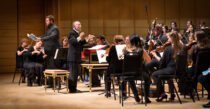
Pacific Baroque Orchestra
The ‘house band’ of Early Music Vancouver, The Pacific Baroque Orchestra (PBO) is recognized as one of Canada’s most exciting and innovative ensembles performing “early music for modern ears.” Formed in 1990, the orchestra quickly established itself as a force in Vancouver’s burgeoning music scene with the ongoing support of Early Music Vancouver. In 2009, PBO welcomed Alexander Weimann as Director. His imaginative programming, creativity and engaging musicianship have carved out a unique and vital place in the cultural landscape of Vancouver.
PBO regularly joins forces with internationally-celebrated Canadian guest artists, providing performance opportunities for Canadian musicians while exposing West Coast audiences to a spectacular variety of talent. The Orchestra has also toured throughout BC, the northern United States, and across Canada. Their 2019 East Coast Canadian tour with Canadian soprano Karina Gauvin culminated in a critically acclaimed album, Nuit Blanches, released by Atma Classique.
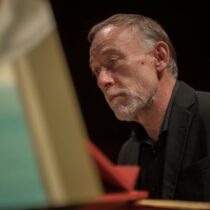
Alexander Weimann, music director
Alexander Weimann is one of the most sought-after ensemble directors, soloists, and chamber music partners of his generation. After travelling the world with ensembles such as Tragicomedia, Cantus Cölln, the Freiburger Barockorchester, Gesualdo Consort and Tafelmusik, he now focuses on his activities as Music Director of the Pacific Baroque Orchestra in Vancouver, Music Director of the Seattle Baroque Orchestra, and regular guest conductor of ensembles including the Victoria Symphony, Symphony Nova Scotia, Arion Baroque Orchestra in Montreal and the Portland Baroque Orchestra.
Alex was born in Munich, where he studied the organ, church music, musicology (with a summa con laude thesis on Bach’s secco recitatives), theatre, mediæval Latin, and jazz piano, supported by a variety of federal scholarships. From 1990 to 1995, he taught music theory, improvisation, and Jazz at the Munich Musikhochschule. Since 1998, he has been giving master classes in harpsichord and historical performance practice at institutions such as Lunds University in Malmö, the Bremen Musikhochschule, the University of California (Berkeley), Dartmouth College (New Hampshire), McGill University, Université de Montréal, and Mount Allison (New Brunswick). He now teaches at the University of British Columbia and directs the Baroque Orchestra Mentorship Programme there. He has received several JUNO and GRAMMY Award nominations – most recently, for the album Nuit Blanches with the Pacific Baroque Orchestra and Karina Gauvin.
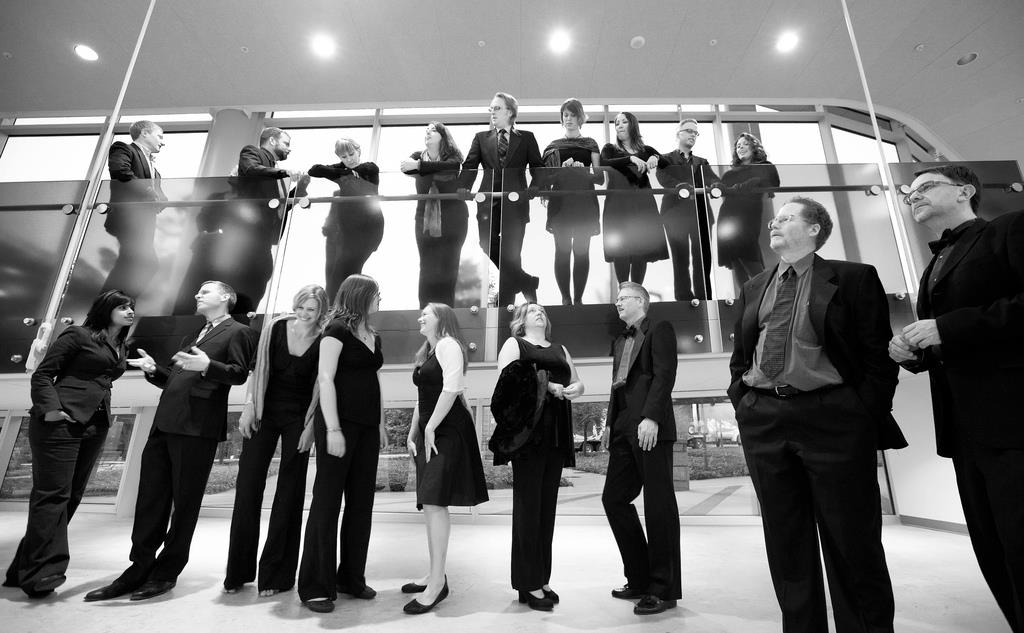
Vancouver Cantata Singers
The Vancouver Cantata Singers is one of Canada’s preeminent, award-winning choral ensembles. Known for its exceptional artistry, technical virtuosity and exquisite tonal blend, the choir maintains the highest standards of performance in repertoire encompassing 500 years.
On Canada Day, 2019, the Vancouver Cantata Singers was awarded the prestigious Canada Council for the Arts Healey Willan Prize, for the fourth time – more than any other ensemble in the history of the award. The VCS was also awarded Best Performance of a Canadian Work and First Place in the Adult Mixed-Voice Category at the National Competition for Canadian Amateur Choirs.
A mainstay on the Canadian music scene for over 60 years, the VCS has maintained the highest levels of artistry in choral singing while continuing to reinvent and redefine itself creating innovative and extremely successful collaborations with acclaimed regional as well as international artists and ensembles.
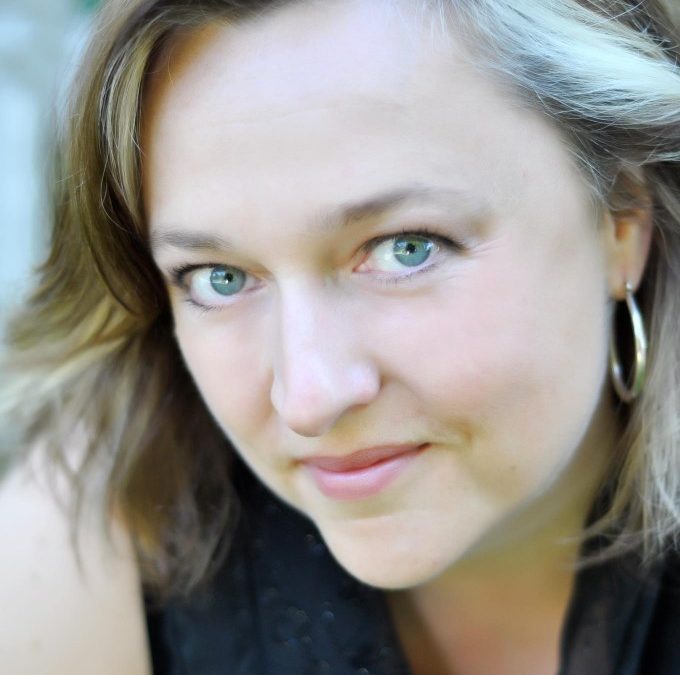
Paula Kremer, artistic director
Born in Vancouver and educated at the University of British Columbia and the Vancouver Academy of Music, Paula Kremer has studied choral conducting at Eton College, Westminster Choir College, the Eastman School of Music and the University of Michigan. An accomplished vocalist and pianist, Paula studied voice with Phyllis Mailing, Bruce Pullan, Marisa Gaetanne and Laura Pudwell and piano with Margot Ehling. As permanent faculty member of the School of Music at Vancouver Community College, Paula teaches choral techniques, voice and solfege. She was previously the Director of Vancouver Bach Choir ensembles for young adults, the Vancouver Bach Youth Choir and Sarabande Chamber Choir. Paula joined the alto section of our choir in 1994 and has been the Artistic Director of the Vancouver Cantata Singers since 2013.

Yulia Van Doren, soprano
Recognized by Opera Magazine as “A star-to-be” following her Lincoln Center debut, young Russian-American soprano Yulia Van Doren’s debut with the Toronto Symphony Orchestra was acclaimed as a “revelation… a ravishing lyric voice and an ease with vocal ornamentation that turned her into an enchanted songbird” (Toronto Star). For her last minute step-in with the Cleveland Orchestra, The Cleveland Plain Dealer praised Van Doren as an artist of “melting poignancy” and added, “To Van Doren, one could easily have listened for hours.”
Highlighting Ms. Van Doren’s 2017/18 season are appearances with Colorado Symphony (Mozart’s Requiem); Music of the Baroque (Bach’s St. John Passion); her return to Milwaukee Symphony (Bach’s Magnificat); and performances of Handel’s Messiah with Houston Symphony, Early Music Vancouver, and Philharmonia Baroque Orchestra.
Especially recognized for her work in the baroque repertoire, Ms. Van Doren has performed with the majority of the North American Baroque festivals and orchestras, and has the distinction of being the only singer awarded a top prize in all four US Bach vocal competitions.
A dedicated interpreter of repertoire off the beaten path, career highlights include creating the lead female role in the world premiere of Shostakovich’s Orango with the Los Angeles Philharmonic, directed by Peter Sellars and released on Deutsche Grammophon; two Grammy-nominated opera recordings with the Boston Early Music Festival; the modern revival of Monsigny’s opera Le roi et le fermier at Opera de Versailles, Lincoln Center and the Kennedy Center (recorded for Naxos); and a tour of Handel’s Orlando with Philharmonia Baroque Orchestra to the Mostly Mozart, Ravinia and Tanglewood festivals.
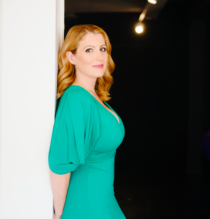
Krisztina Szabó, mezzo-soprano
Hungarian-Canadian mezzo-soprano Krisztina Szabó is highly sought after in North America and Europe as an artist of supreme musicianship and stagecraft. She is known for her promotion and performance of contemporary Canadian works. Among her many laudatory reviews, Opera Canada declared her to be an “exceptional talent” after her performance of the title role of Dido in Purcell’s Dido and Aeneas. After a performance with Tapestry Opera, the music blog, Schmopera wrote that “her instrument is one-of-a-kind and she has cemented herself as a darling of Canadian experimental music and opera…her sensibility and sensitivity to the material is truly inspiring”. In her hometown of Toronto, she has been nominated twice for a Dora Award for Outstanding Female Performance. Krisztina has recently been appointed Assistant Professor of Voice and Opera at the University of British Columbia School of Music.
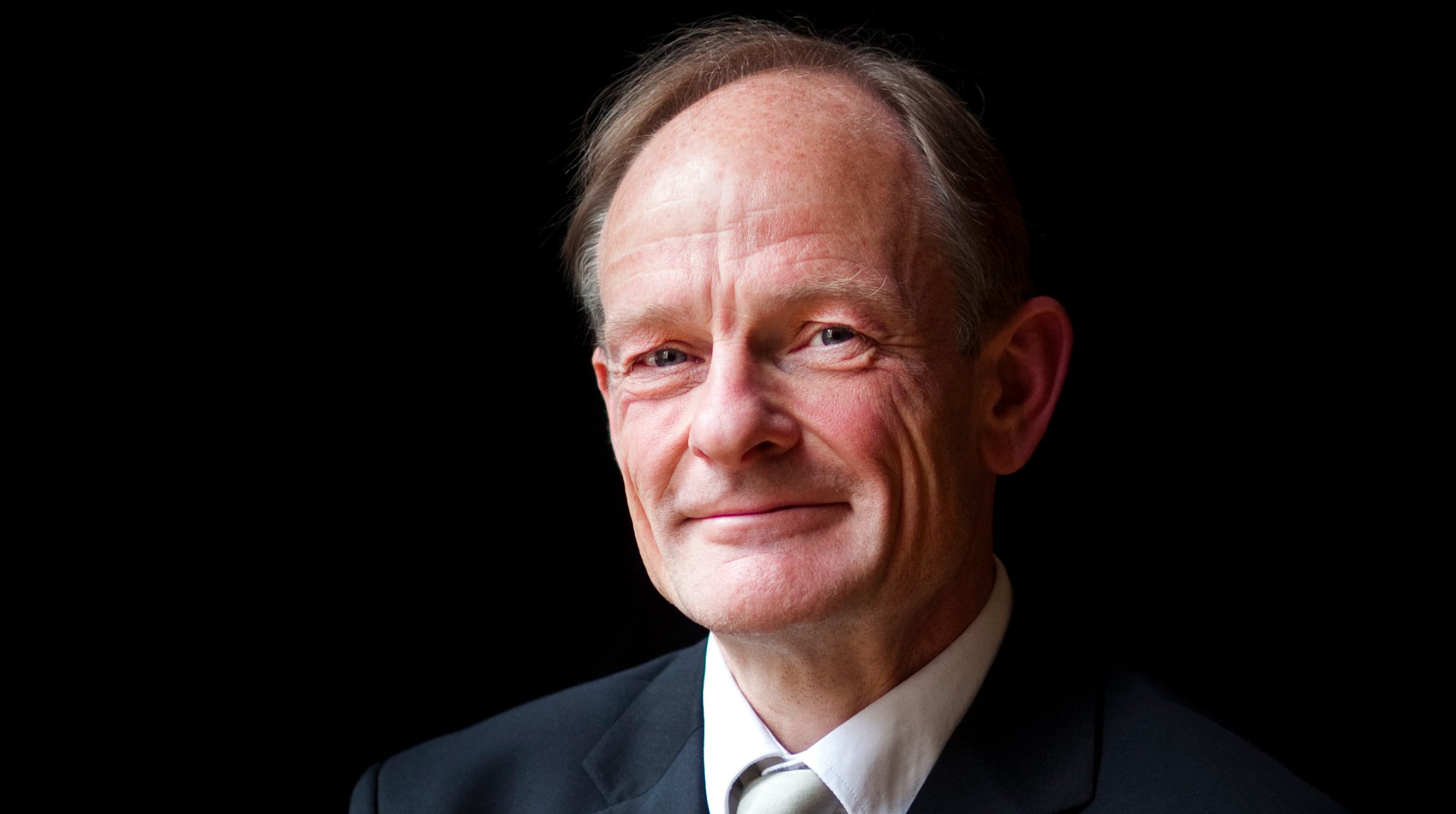
Charles Daniels, tenor
Charles Daniels is a noted interpreter of Baroque music, though his narrative gifts are praised for music as diverse as Machaut Virelais and Graham Treacher’s Visions (2016). His recordings include Monteverdi’s L’Orfeo with Andrew Parrott, Bach’s Matthäus Passion with the Bach-Stiftung; Schütz Weihnachtshistorie, Monteverdi’s Vespers and Purcell’s Fairy-Queen with the Gabrieli Consort; Heracleitus with the Bridge Quartet and Lambert airs with Fred Jacobs; Kilar’s Missa Pro Pace with the Warsaw Philharmonic; much Bach and recent Purcell releases with the King’s Consort.
He created the dual role of Ulisse and John Gregory Dunne to critical acclaim in last year’s Bayerische Staatsoper production of Il Ritorno d’Ulisse/Jahr des magisches Denken His concert appearances span the intimate and the grand, from BBC Radio 3 recitals with lutenist Elizabeth Kenny, domestic music of Bach for Nederlandse Bach Vereniging and Handel Chandos Anthems in their original setting of the Canons Estate church, to performances of Britten’s War Requiem (Canterbury, Lille) and Elgar’s Dream of Gerontius (Cardiff, Wroclaw). Recent concerts include Dowland in Japan with Les Voix Humaines, Viadana in Verona and Switzerland with Bruce Dickey, a Weckmann programme in Vienna’s Konzerthaus and the 50th birthday celebration in Oxford of Andrew Parrott’s Taverner Consort.
Charles’ reconstructions of Gesualdo’s Sacrae Cantiones à6 have been premiered by the Gesualdo Consort of Amsterdam and his completion of Purcell’s court Ode Arise my Muse was broadcast on Radio-Canada during the Montréal Baroque Festival. He is delighted to return to EMV for this summer’s Festival.
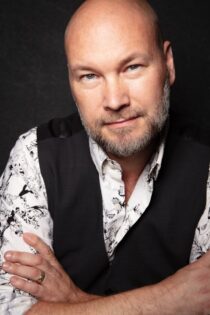
Tyler Duncan, baritone
Sought-after baritone Tyler Duncan appears regularly on major concert stages around the world. Recent critics have called his performances “eloquent,” “charismatic,” and “stunning,” and praised his “refined, burnished voice” and “impeccable phrasing.” Tyler has recently appeared in concerts with the Minnesota Orchestra, the Toronto Symphony, the Kansas City Symphony, the New York Philharmonic, and at the Wigmore Hall.
Also accomplished on the opera stage, Tyler has appeared at the Metropolitan Opera as Prince Yamadori in Puccini’s Madama Butterfly under Karel Chichon, among many other Met Opera roles. Other recent roles include Morales in Bizet’s Carmen under Seiji Ozawa, and appearances in the Spoleto Festival as the Speaker in Mozart’s The Magic Flute. Duncan is also passionate about new opera; recent roles include Raymond in Nic Gotham’s Nigredo Hotel with City Opera Vancouver, and in the world premiere of Jonathan Berger’s Leonardo at New York’s 92nd Street Y.
Mr. Duncan also performs as a duo with pianist Erika Switzer, celebrating songs from the Romantic period as well as the work of living composers. Together the pair have premiered dozens of new compositions.
Tyler’s recordings include the newly released album English Songs à la française with Erika Switzer, the Juno Award winning Vaughan-Williams Serenade to Music with Peter Ounjian and the Toronto Symphony, Earthquakes and Islands: an album of songs by Andrew Staniland with texts by Robin Richardson, the title role in John Blow’s Venus and Adonis with Boston Early Music Festival, J.S. Bach’s St. John Passion with the Portland Baroque Orchestra, Purcell works and Carissimi’s Jephte with Les Voix Baroque, and a DVD of Handel’s Messiah with Kent Nagano and the Montreal Symphony Orchestra. His singing has been recognized internationally with numerous awards, including Grammy and Juno nominations and prizes from the Naumburg, London’s Wigmore Hall, and Munich’s ARD competitions.
Originally from British Columbia, Canada, Mr. Duncan resides in New York’s beautiful Hudson Valley. www.tylerduncan.ca


